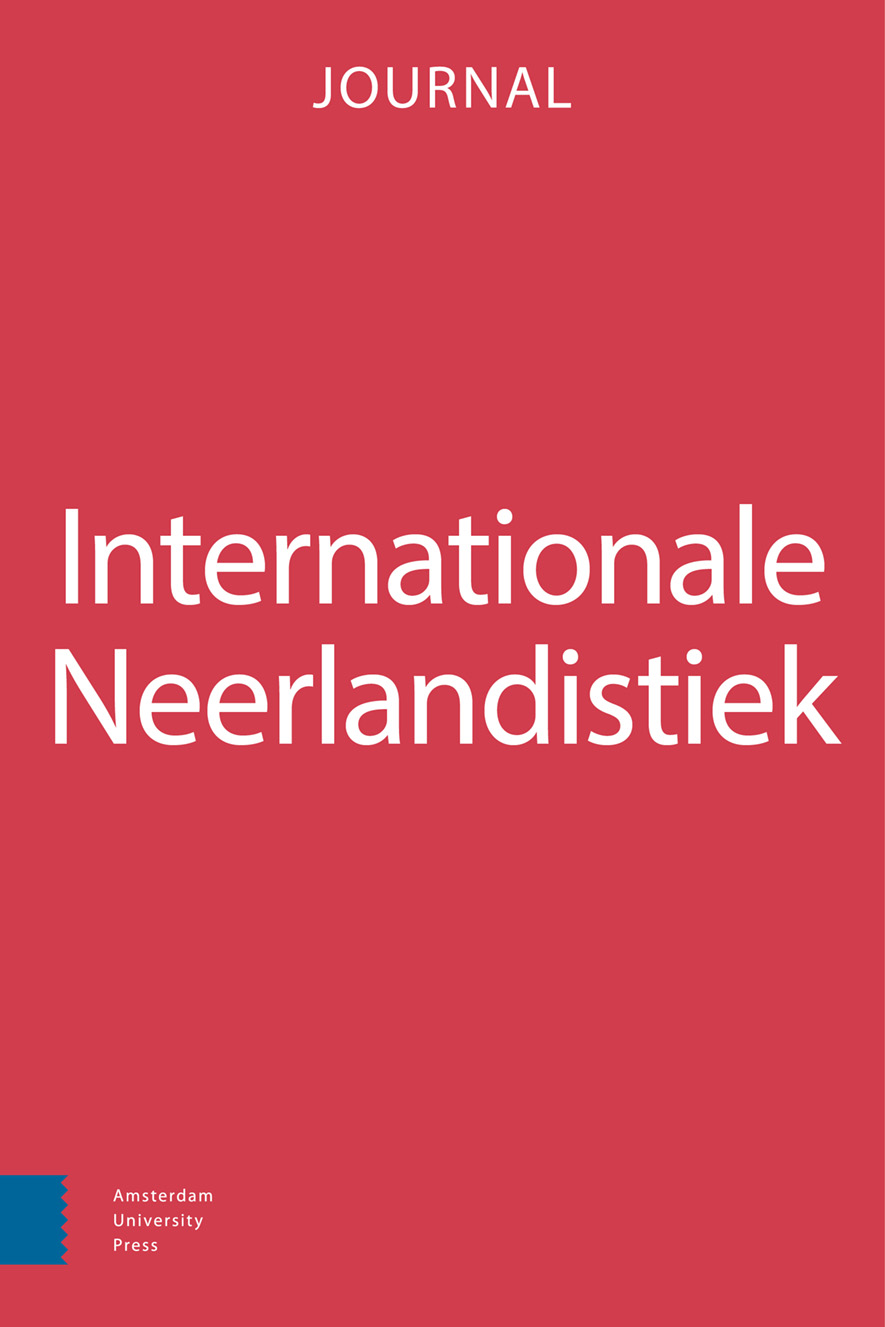-
oa Verstand van zaken
Literaire epistemologie van romans over kooplieden
- Amsterdam University Press
- Source: Internationale Neerlandistiek, Volume 55, Issue 2, Jul 2017, p. 153 - 170
-
- 01 Jul 2017
Abstract
This paper explores the way fictional texts activate, integrate and organize knowledge by focussing on the epistemological frame that fictional scenarios provide. I will provide a case-study of three Dutch-language novels from the early 20th century which depict merchants and business-men. The merchant is a well-established literary character situated at the cross-section of economic, literary-historiographic, and – especially in the case of Dutch literature – imagologic discourses of knowledge. I will analyse the structuring of interfering knowledge domains and the affirmation and/or transformation of mental concepts of economy. By that, I intend to contribute to understanding the literary epistemology that shapes the relationship of texts and their readers.


